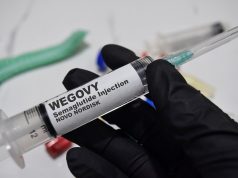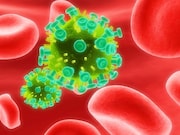HIV Transmission Risk Small With Antiretroviral Compliance
No transmissions with antiretroviral tx, viral load of less than 200 copies/mL four to six months apart
ACAAI: Oral Immunotherapy Is Protective in Peanut Allergy
More patients receiving AR101 able to ingest ≥600 mg peanut protein without dose-limiting symptoms
MS Relapse Drops During Pregnancy but Rises After
Disease-modifying drug use uncommon year before pregnancy and further drops during pregnancy
Opioid Misuse Varies With Sexual Orientation
Prescription opioid misuse more likely for female respondents identifying as bisexual
Prevalence of Food Allergy 7.6 Percent in U.S. Children
Most prevalent allergens are peanut, milk, shellfish, and tree nut
FDA Warns Against Giving Honey-Filled Pacifiers to Infants
Four infants in Texas hospitalized with botulism after using pacifiers containing honey
Cap’n Crunch Cereal Recalled Due to Salmonella Scare
No illnesses related to the products have been reported to date
ACAAI: Almost 2 Percent of Children Have Milk Allergy
Among children with food allergy, 53 percent of infants have milk allergy vs. 15 percent of teens
ACAAI: Hospital Stay, Caregiver Knowledge of Asthma Linked
Children of caregivers with poor asthma knowledge more likely to have prolonged hospital stay
Higher Risk for Amputation, DKA With SGLT2 Inhibitors for T2DM
Risk increased for lower-limb amputation, diabetic ketoacidosis compared with GLP1 receptor agonists



















